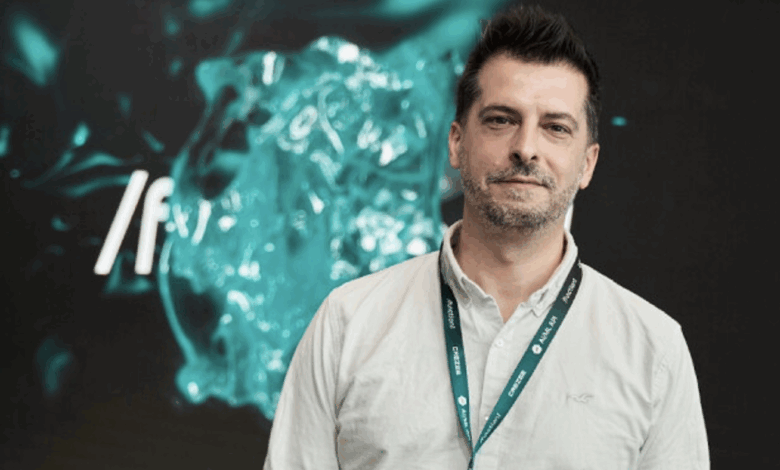
Dan Figueiredo is a transformative voice in digital innovation, known for helping some of the world’s biggest brands unlock the power of emerging technologies. With a career spanning leadership roles at Microsoft, Capita, and Sky, Dan has become one of the most sought-after artificial intelligence speakers, offering invaluable insights into how AI and data-driven strategies are reshaping modern business.
As a top technology speaker and experienced digital consultant, Dan specialises in applying AI, automation, and big data to solve complex challenges. Whether he’s advising FTSE 100 companies or championing inclusive innovation through initiatives like T.E.A.R. (Technology Community for Racial Equality), his passion for impact-led transformation is unmistakable.
In this exclusive interview, Dan Figueiredo shares his expert take on what’s next for innovation speakers, how to lead effective tech-driven change, and why leadership speakers must stay ahead of the curve in an age defined by disruption and data. An influential voice among big data speakers, Dan brings clarity and action to the fast-evolving world of intelligent enterprise.
Q: You’ve helped some of the world’s most recognisable brands navigate digital change. In your view, how are AI and other emerging technologies shaping the next frontier of business performance and transformation?
Dan Figueiredo: “People. I mean, ultimately, I believe that AI and other related technologies are typically going to be used in a couple of ways. I think organisations have already made the pivot towards being more data driven with regards to their decision-making, but you’ll be amazed at how many businesses are still making those decisions based on gut feel versus what the data might actually tell you.
“And then, when you have data, the ability to apply AI over the top to do those analytics and insights can generate some really interesting outcomes. Typically, you can also apply it to back-end operational efficiency.
“I think in terms of more of the front end, you’ve also got the potential to explore more personalised customer experiences, which I think is going to be hyper important going forward. And you can also use those AI-driven insights to push the whole innovation and development angle. I still believe in that ability to really take predictive analytics and operational outcomes to the next level by leveraging AI.”
Q: When it comes to introducing new technologies into complex organisations, what core principles or strategies should leaders prioritise to ensure successful implementation and long-term adoption?
Dan Figueiredo: “I think it’s super important that when you’re thinking about introducing any new technology into your business, that there is that clear strategy—and that strategy is aligned to business goals.
“I think it’s important also that we engage your stakeholders early. The reason for that is that, in my view—and I tend to upset some of my counterparts and colleagues—is that technology is fairly binary. It either works or it doesn’t. The thing that makes it come to life is the people.
“So, when you’re thinking about technology-driven change, one of your most important, if not the most important part of that change, is the people. So, do you have some sort of plan to have the people contribute towards the change management required to deliver the business outcomes that the intended technology is being introduced to deliver?”
Q: From your perspective as both a technologist and strategist, which emerging technologies or trends should business leaders be watching closely—and why?
Dan Figueiredo: “Pretty hard to ignore AI and the whole GenAI hype at the moment. As somebody who’s been involved in and following AI since my late teens, early twenties, I still believe we’re at the absolute tip of the iceberg as to what is possible and what will come next.
“I also think that there will soon be some breakthroughs within quantum computing that could have a significant impact. There are bound to be advances, because of those two things, around cyber security. I think there’ll be a bigger drive around sustainable technologies, and I still feel like we’re missing a trick around IoT, blockchain, and 5G.
“Everything I’ve mentioned, plus those three things combined, means that something of significance will happen in that space. Most likely, the only other one that’s probably worth mentioning is robotics and automation. Those are the key trends—the coming wave of technology that’s bound to have some significant impact over the next 10 years.”
Q: As someone who champions innovation at both a corporate and community level, what practical steps can organisations take to create a truly innovative culture from the inside out?
Dan Figueiredo: “Ultimately, I think it’s important that people—or organisations, and really an organisation is its people—foster that kind of culture of innovation from the get-go. It’s a leadership decision. You have to be intentional; you want to foster that culture, so there has to be that strategic leadership and vision.
“I think it’s really important that we have diverse teams, because diverse teams bring diverse thoughts and other ways of approaching things. Therefore, that’s likely to create the constructive tension that is required to bring about legitimate innovation.
“You should obviously invest in R&D, but that’s quite a stretch for many organisations. So, one of the things you can do is actually empower your employees as well. Think about having some sort of hackathons where people who are non-technical can bring their brilliant business ideas—you team them up with other people within your organisation to bring about that innovation.
“But, you know, working with external partners and leveraging technology—AI and others—are also ways in which you can bring about strategies and techniques that foster that innovative approach.”
Q: Through your work with T.E.A.R. and other initiatives, you’ve advocated for systemic inclusion in tech. What proven approaches have you seen work when it comes to embedding diversity, equity, and inclusion in the technology sector?
Dan Figueiredo: “Obviously, I’m part of T.E.A.R.—which is the Technology Community for Racial Equality—and we’ve gained lots of insights from a diverse set of technology businesses as to what really is needed and what’s being done.
“Ultimately, there has to be intentional commitment from the leadership. Where we see a lot of people try and focus their efforts is around inclusive hiring practices—getting diverse talent through the door. But then, not necessarily as much energy is being put into ensuring that you have an inclusive workplace.
“Once you’ve gone through the effort to land talent—which is expensive—you’re then not retaining the talent. So, we have to think about inclusive workplace culture. I think it’s really important that you have a mentoring or sponsorship programme of some kind.
“And as long as there’s diverse leadership and diverse decision-making processes—and people can see themselves reflected throughout the organisation—you tend to have the right things in place.
“Ultimately, I’m a believer that if you are to measure something and report on it, immediately that process of measuring and reporting changes behaviours. So, it’s always important—if you care about something—you should track it, report on it, and that will help drive the right outcomes.”





